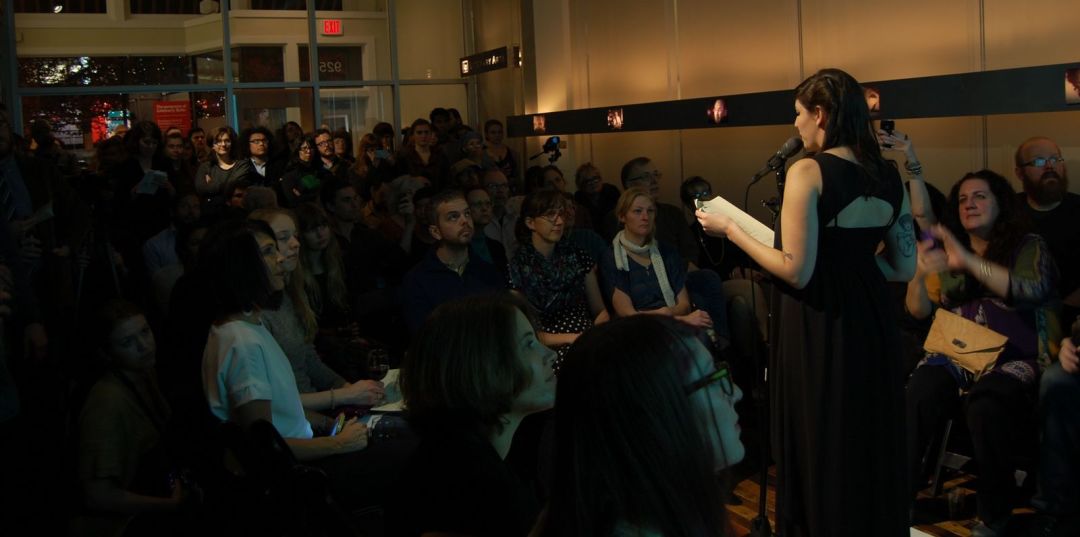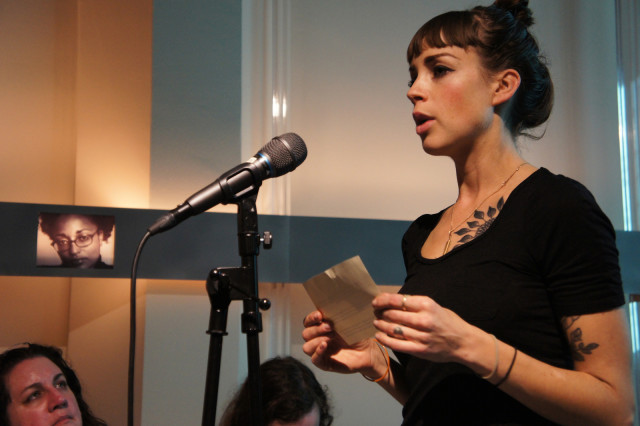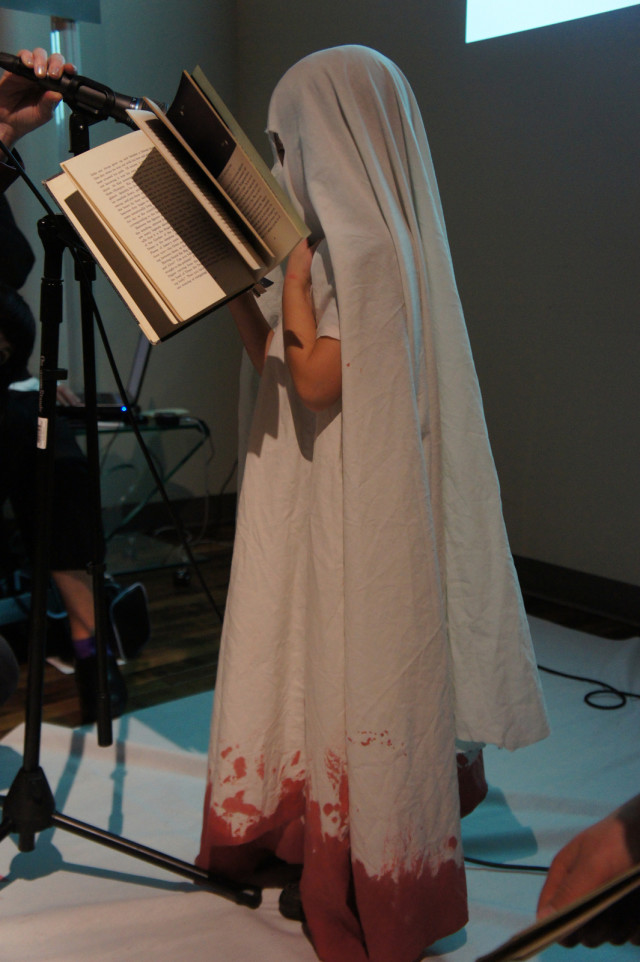Poetry Press Week in Review

Reading to a full house at Poetry Press Week.
Image: Courtesy Wailana Kalama
On a drizzly Thursday night, the downtown non–profit Literary Arts was packed with a curious, bookish crowd armed only with rumors. No one knew what to expect from the inaugural Portland Poetry Press Week, an annual event designed by Liz Mehl and Justin Rigamonti borrowing concepts from the fashion industry’s bi-annual runway format—complete with models and catwalks.
The evening featured new work by five established local poets read by stand-in readers instead of the poet themselves, mixed with a chic, minimalist catwalk in lieu of a stage, reserved seating and standing room in back, and cocktails. One part fashion show, one part performance art, the event turned familiar reading convention on its head, to say nothing of the seductively exceptional poetry itself.

Reading Matthew Dickman's "Event Scores"
Image: Courtesy Wailana Kalama
Matthew Dickman got the show off to a bang with his punchy list poems and stage direction series titled “Event Scores.” The line between reader and performance artist was blurred as performers traipsed through the audience hollering out birdcalls, acting out lines, and tossing crumpled newspapers on cue.
Poet Ashley Toliver maintained the surreal, electric energy in the room by featuring two readers dressed identically in black and white. Side-by-side, they chanted in chilling monotone the words of her title poem, “Ideal Machine,” with a backdrop of medical and moth images flashing behind them.
Next up, poems by Britta Ameel’s were performed by the melodic, haunting Laura Gibson strumming her guitar. And, in a nod to fashion week catwalks, Carl Adamshick kept audience members rapt by marching seven readers down the white runway.

Reading from Zachary Schomburg's "Agnes the Elephant"
Image: Courtesy Wailana Kalama
Last up, Oregon Book Award–winning Zachary Schomburg ended the show with a sucker punch sampling from his forthcoming book, Agnes the Elephant. The audience sat in a shocked hush as a seven-year-old reader costumed in a bloodstained ghost costume read quietly on stage. Schomburg helped the boy, holding the book up as he finished the poem in a finale that was eerie and inexplicably cute.
The audience filed out of Literary Arts two hours later into the chilly November night a little shaken and fully inspired. To say that the energy of the first Portland Poetry Press Week breathed air into a tired format doesn’t quite do it justice. What I witnessed Thursday night kicked the stale, awkward poet–at–the–mike’s ass.
These were meaty, complex poems packaged so interestingly that anyone—poetry lover or not—would be hard pressed to look away.
In a culture where you have to jolt people a little to get them to read something longer than a tweet, innovative reading series like Poetry Press Week can only bolster the literary community in Portland—and I can’t wait until the next one.




